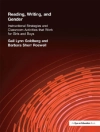Realising Innovative Partnerships in Educational Research examines the underlying principles and actions that support the development of and engagement in partnerships in educational research. With social justice at its core, the work in this book represents various architectures of innovation, whereby new ways of thinking about partnership research are proposed and practices of teaching and learning are reconciled (or not) with existing education contexts and practices. With contributions from educational researchers and practitioners from New Zealand, and international commentaries provided by established scholars in the field, the book draws together key experiences and insights from students, teachers, community members and researchers in tertiary, community, school, and early childhood settings. The research in this book seeks to address a gap in our understanding, extending knowledge beyond simply the benefits of partnership work, to examine how successful partnerships can be initiated, enacted, and sustained over time. This book invites reflection on the following provocations: Why engage in partnerships for educational research? How has this happened in the past and what needs to happen for the future? What is unique about the New Zealand context and what might researchers in other countries learn from our collaborative and culturally responsive research methodologies? What could be some of the underlying principles that support the development of and engagement in collaborative research? How do we evaluate the effectiveness of research partnerships in education to shift the focus to the future?
Mục lục
Elaborating Local Research Agendas: Reimagining Innovative Research Partnerships; Partnerships, Networks and Learning in Educational Research: Contested Practices; Section I: Research Partnerships with Students; Introduction: Partnerships with Students; ‘It’s Cool, People Your Same Age Being in Charge of You’: Enacting Student Voice through Classroom Governance Partnerships; Research with Children: An Example from Early Childhood Education/Early Years Settings; Developing Inclusive Practices: Deconstructing and Reconstructing Partnerships in Times of Change; Partnership among Multicultural Peers in the Scholarship of Teaching and Learning: Moving beyond Research Boundaries; Section Commentary: Reflections on Enabling Authentic Partnership; Section II: Research Partnerships with Teachers; Introduction: Supporting Innovation through Collaborative Research with Teachers in School and Tertiary Settings; Teacher-Researcher Partnerships: Working Together to Enhance Young Children’s Learning in Mathematics; Blurring the Boundaries: Teachers as Key Stakeholders in Design-Research Partnerships for Mathematics Education; Rethinking the Associate Teacher and Pre-Service Teacher Relationship: Powerful Possibilities for Co-Learning Partnerships; Research as a Catalyst for Cross-Disciplinary Partnerships amongst University Lecturers; Section Commentary: Learning in and from Intentional Partnerships between University Researchers and Teachers; Section III: Research Partnerships within and across Organisations; Introduction: Partnership as Knowledge Building and Exchange amongst Stakeholders; Sharing at Kaipaki School: Inquiry and Digital Legacies; A School-Researcher Partnership with Pragmatism at its Core; Culturally Responsive Relationships Promoting Partnerships between Schools and Indigenous Māori Families and Communities; ‘It’s a Living, Breathing Entity’: Research Partnerships, Young Children and the Environment; The ‘Mantle Underground’: A Case Study in Informal School-University Partnership; Section Commentary: Reflections on Tiers of Partnership Possibilities; Section IV: Research Partnerships with Community; Introduction: Community Partnerships Creating Spaces for Democratising Enterprise; Dance on Campus: Partnerships and Participation in Tertiary Dance Education and Community Dance Practice; Enhancing Youth Leadership through Community Partnerships: A Case for Christchurch; Community Engagement through Continuing Education in a University: Older Adult Education with Māori Elders; Community Partnerships in Sustainability Education Research; Section Commentary: Partnerships with Communities; Section V: Research Partnerships with Multiple Institutions; Introduction: Multi-Institutional Partnerships: A Global Agenda; A Cross-Cultural Partnership in a Tertiary Setting; Finding Places of Connection in an Inter-University Partnership: An International Collaboration; An International Tertiary Research Partnership: Pedagogies of Educational Transitions; Places and Spaces for Embodiment: Developing an Aotearoa New Zealand/Sweden Partnership; Section Commentary: Partnerships in Pursuit of an Internationalisation Agenda; Section VI: Concluding Thoughts; Partnership Research: A Relational Practice.












